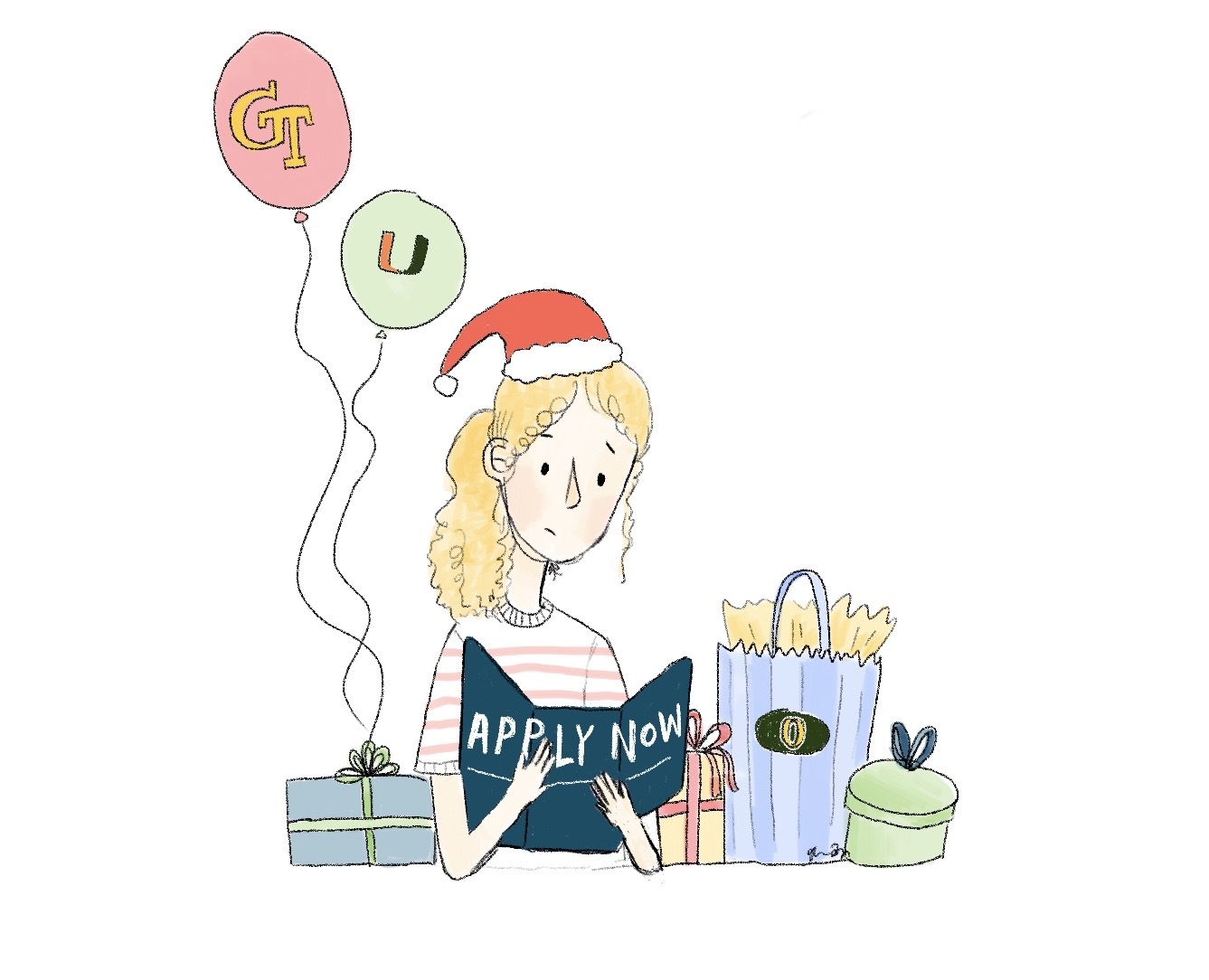I should not have to worry about college applications as a junior
November 19, 2021

Nothing does a better job of setting the mood at the Thanksgiving dinner table like a premature question about my future plans.
Well-intentioned inquiries from older family members are meant with no harm, but nonetheless send me into a mini identity crisis every time the topic is brought up. As the holidays approach, I’ve been trying to formulate the best way to say that I plan on becoming an English major without the family fearing for my future financial well-being.
Though I’m still a junior, it seems like the only thing I should be focused on is the future.
I took the PSAT my sophomore year, and the College Board has not left me alone since. The process of sifting through automated emails from colleges with ominous subject lines like, “per my last email” or, “we look forward to seeing you,” takes several minutes off of my life expectancy everytime I open my inbox. Those minutes add up.
And after taking the SAT last month, the problem has increased two-fold. Some schools have even begun sending snail mail, the good old-fashioned way.
At first I saw this phenomenon as flattering. I remember getting my first correspondence from The University of Colorado, Colorado Springs, and thinking it was akin to an acceptance. But about 5,000 emails and letters later, I don’t even bother to open them. My trash cans now overflow with brightly colored brochures and flyers, all of which advertise a unique college experience.
Still, though I’ve become thoroughly desensitized to the matter, my parents have not. Occasionally, I’ll come home to find a letter from West Point or Stanford sitting on my place at the dinner table. These are clearly grabs for money, telling me (and likely every other student with a baseline GPA and SAT score) how they think I’m a “great fit!” for their several-thousand-dollar summer program.
Things like this are borderline offensive. Schools that I have no shot of getting into are trying to woo me into shelling out my parents’ money. All they really do is provide more of a sense of urgency to a matter that, at this point, doesn’t need to feel so urgent. I all but beg my dad not to put these letters up on the “accomplishment board,” and have to explain every time how they’re really nothing special.
I’m excited for the future, just not so excited that I want to be bombarded with reminders of its impending nature 10 months in advance. I would love to at least get through winter without being bothered by thoughts of transcripts and test scores. And I certainly plan on continuing to ignore mail from schools suggesting that I attend their “Zoom informational session.”
Really, I’ll be more than grateful this Thanksgiving to avoid the topic of higher education and all I want for Christmas this year is not to be asked if I’ve “put much thought into the future.” Talk to me in a year—hopefully I’ll have some semblance of an idea then.


